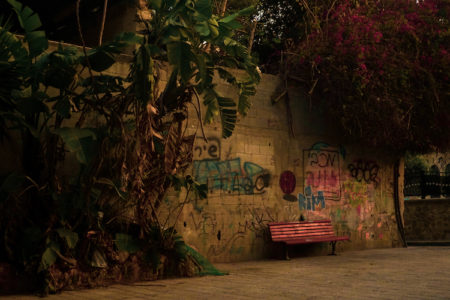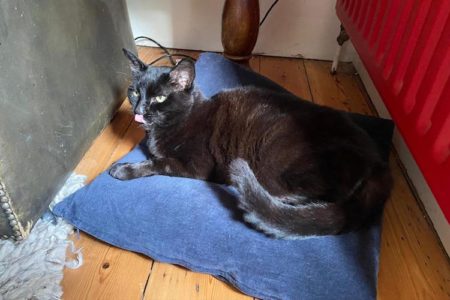Music sounds better with you!!! The feminists of Salon zur wilden Renate
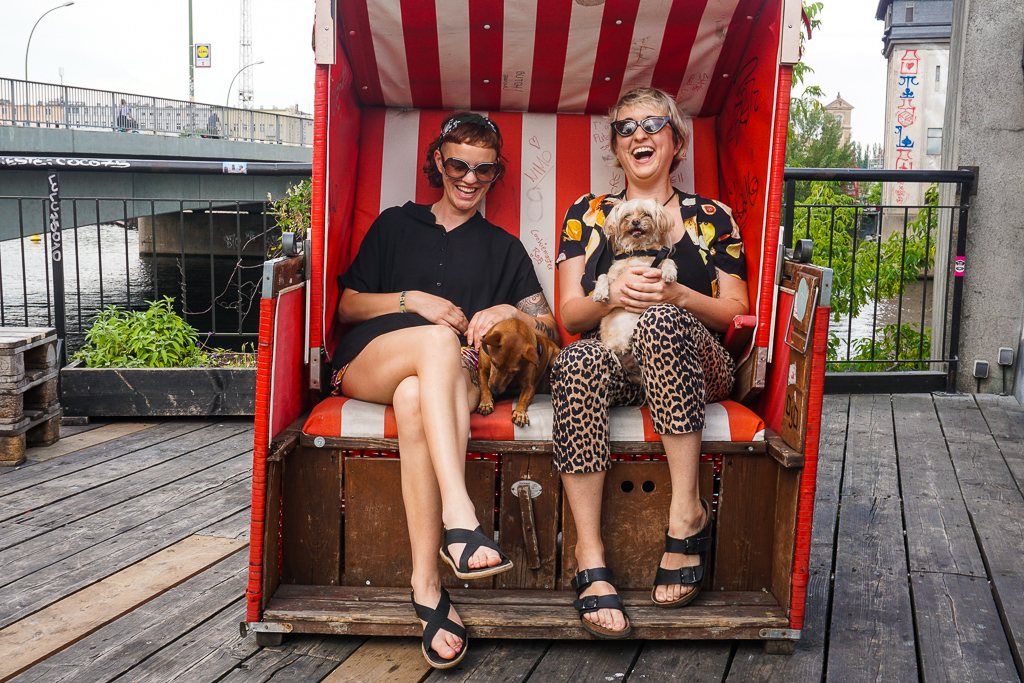
Let’s talk about sex and drugs
It’s 8pm on a Thursday evening. The weekend raving is yet to begin but the odour of cigarettes and other substances still lingers in the air of Salon zur wilden Renate. After years of never-ending parties the place now permanently smells like debauchery. It’s strange to be here at this hour, and stranger still that my focus is on what’s happening in front of the decks rather than behind.
Pansy sits in front of the grimy DJ booth in Renate’s main room. Blue and yellow spotlights smatter the stained walls, dappling the faces of the spectators that sit on benches. Pansy wears dark jean dungarees and a beanie that’s barely pulled over her skull so it sticks up at a right angle. She sits in a black snake skin chair, her attention focussed on one face in particular. Pansy leans forward, pushes her yellow sunglasses slightly up her nose and in a soft, American drawl says: “Can you repeat the question?”
“Sure,” says a man’s voice from the audience. His face is in shadow. “What do I do when I get too high and the risk of disease becomes a turn on?”
Pansy leans back in her chair. “What drugs are we talking about here?”
“Meth.” Says the asker.
The audience looks at Pansy expectantly. Some lean forward on their benches, others sit on a five foot platform against the wall, arms resting lazily on their knees. The audience is a mix of young and old, baby-faced and haggard, curious and fatigued. Some, in faded t-shirts and well-worn jeans, give away a history of drug addiction through facial ticks and twitches. Others are meticulously well-dressed in thick chain jewellery, clunky Buffaloes, cross-body bags, rocking the globally recognised look that says “I like to go clubbing in Berlin.” Some look so fresh-faced and innocent it’s as though they stumbled here by accident trying to find the library. But they’re all here for the same reason: to talk about sex and drugs with Pansy, one of Berlin’s most celebrated and respected drag queens.
Pansy has spearheaded Berlin’s drag scene since 2006. She regularly provides support for the LGBTQI+ community and today is her first Let’s Talk About Sex and Drugs Q&A at Renate – a safe space for the community to get answers to questions too sensitive to ask friends.
Pansy stands up and leans against the far left wall, gazing at the asker as if it’s just the two of them in the room. “No one will care about you as much as you care about yourself.” Pansy says. “If you’re taking these risks when you’re high you need to take time out when you’re sober to understand why.”
After this ice-breaker the discussion becomes lively. A young man from India asks whether using your own straw to sniff drugs reduces the risk of contracting Hepatitis C (yes is the answer.) A long-haired middle-aged woman with magnetic charisma reveals she’s a therapist to DJs and asks: “If drug taking is a spiritual experience how can we return people back to their bodies and every day lives once the party is over?”
Throughout the evening Pansy answers enquiries from the bouncer of a queer femme play party, a man who’s no longer able to hold his head upright due to methamphetamine abuse and a beautiful boy, surely no older than 18, who says he’s from China and is curious to know: what exactly is prep?
Pansy answers each question thoroughly and with confidence. She clearly cares deeply for this community. There are no taboos here tonight, everyone is welcome – and creating this environment is something Salon zur wilden Renate have been working on for a while.
A brief history of Salon zur wilden Renate
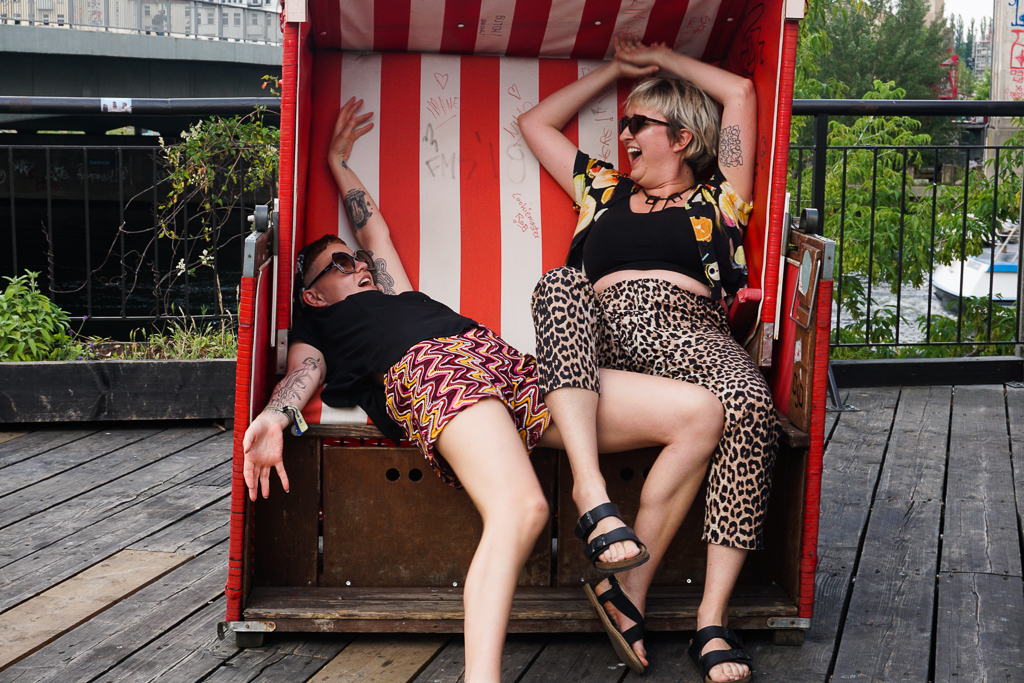
Two weeks later. It’s a mild day in May and I’m sipping an Apfel Schorle in Else, Renate’s sister club on the opposite side of the River Spree. The place is almost empty apart from a couple of shirtless graffiti-artists topping up Else’s rainbow paint job and a couple of bar staff re-stocking the fridges. But despite a lack of people, the energy of the place remains. It’s impossible not to feel disco-fresh positivity in a space this full of colour. Good vibes hang in the atmosphere – in the swings suspended next to the bar, in the yellow and purple shipping containers, in the giant disco balls and the multi-coloured bunting. Else is part open-air, part fun-house and the club screams summer.
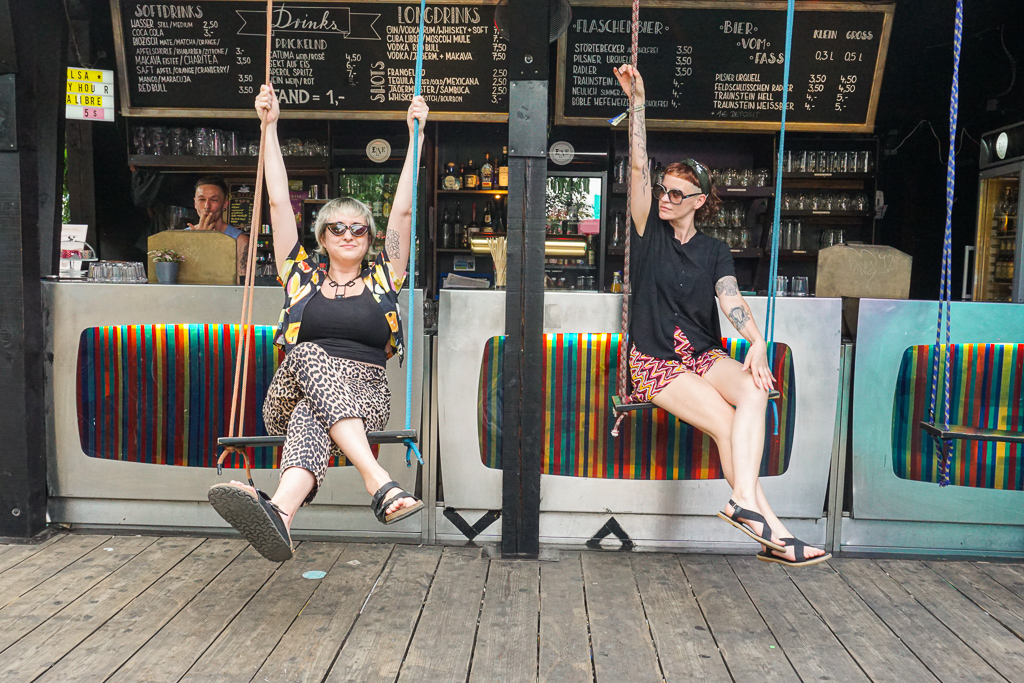
I’m here to understand Renate’s history in booking DJs – or rather, the DJs they haven’t been booking. The club has faced criticism in the past surrounding it’s diversity policies and I’m curious to find out the evolution the club has undergone to accurately reflect the people on their dance floors through the DJs they book.
I’m here with Sue, one of Renate and Else’s founders and Saskia, a long-time member of the Renate family who over the years has worked on the door, behind the bar, in the office and everywhere else in between.
Sue speaks in a soft, girlish voice. Her hair’s piled up in a messy knot on top of her head and lashings of dark eyeliner make her eyes strikingly blue. She’s modest about the institution she founded with three friends and spends little time acknowledging how deeply woven Renate is in the fabric of Berlin nightlife and the global club landscape.
“Renate started as a house party,” Sue says. “It was like we were inviting people into our living room.” In fact, she explains, it was a living room for a while – Ingo and Lydia, two founders, lived there for a bit and would stuff their belongings into a wardrobe every time they thew a party.
Renate’s doors opened in 2007. “One of our founders always passed the building and wanted to do something with it,” Sue explains. They started with underground squat raves using just one or two rooms until over-stimulated ravers kept falling through the walls, unearthing more and more rooms to expose the labyrinthine layout we know today.
After several months of underground raves the owner handed the building over to them for little rent. His reasoning: plans for a motorway meant the building would be destroyed soon anyway. This motorway is still threatening the existence of Berlin institutions including Else, Renate and About Blank – but you heard it here first: the club owners themselves have no clue what’s going on. “We still don’t know if it’s going to happen,” Sue says.
After placing themselves on the right side of the law, Renate continued to book the same DJs over and over again. They shared two common traits – I’ll leave you to guess what they were. Saskia, who manned the door during the early years, says that even today the original community remains: “The people who come to Renate make it unique. The old friends and the old crowd are very open-minded and they’ve been friends for many years – you can still feel this community, family vibe.” However for a while this was part of the problem – the music was being kept in the family.
Sue says “That’s changed now. Because we’re more developed and educated. It started as a house party but we’ve always been open to everybody.” For many years Renate’s resident DJs were exclusively male, however in recent years with the likes of Trash Era and House of Red Doors, both queer fetish parties, their line-ups have become much more representative of the clubbers that have always graced the dance floor – but now they’re behind the decks.
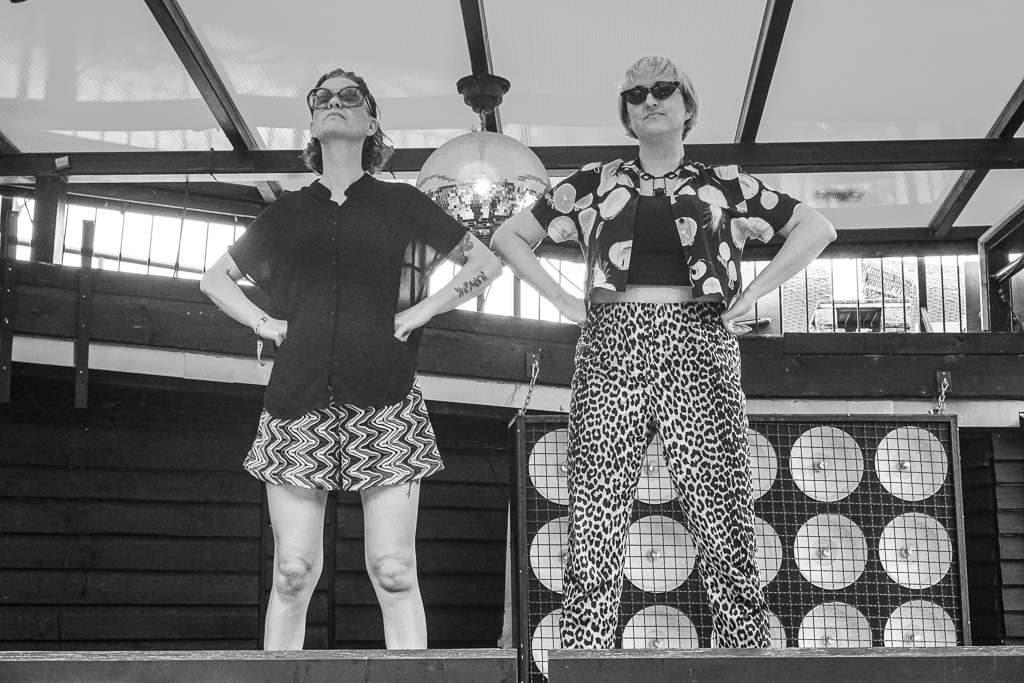
Meet the residents
Two explosive examples of this evolution come in the form of Alison Swing and Sophie (S) Ruston, both residents at Renate. Sophie arrives at Else first, bounding over the decked floor virtually radiating with energy. She speaks in a mild West Country accent, piecing her sentences together so artfully she makes the entire table crack up several times. She chatters happily about her background in music and her unconventional journey to becoming a resident at Renate.
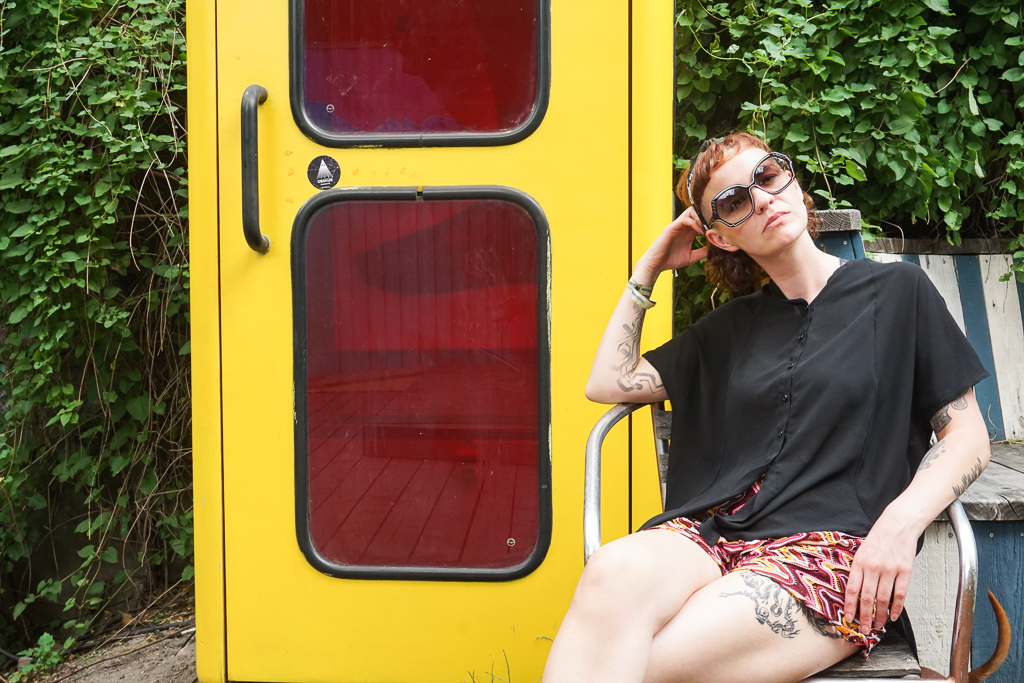
“I moved to Bristol from Wales when I was 19 or 20,” she says. “I started going out, I made some friends and a lot of them happened to be DJs.” Sophie explains how a friend taught her how to manoeuvre the decks and she soon started playing her adored garage and Drum’n’ Bass selection at small gigs and house parties.
A few years later, after a visit to Berlin and one of those world-altering Berghain experiences, Sophie said “Fuck it, I’m moving.” And she did, planting roots while the rent was still low and spending the weekends playing her powerful, upbeat musical catalogue in techno institutions. But, although she loved it, she now sees in retrospect that she never quite felt at home. After a few years of living hand-to-mouth, sometimes only eating thanks to the generosity of friends, she felt deflated and drained by the scene. “It felt like artists were like fashion – they were in for a season and out for a season. I saw a side of the industry that I just hated and I quit.” She pauses for a second. “Not that anyone actually noticed.” The table cracks up.
Sophie went to work in various kids camps in Germany. “I was just having fun and being silly. And that’s when I started to meet my queer community. We put on secret forest raves in Berlin and I was DJing a little bit.”
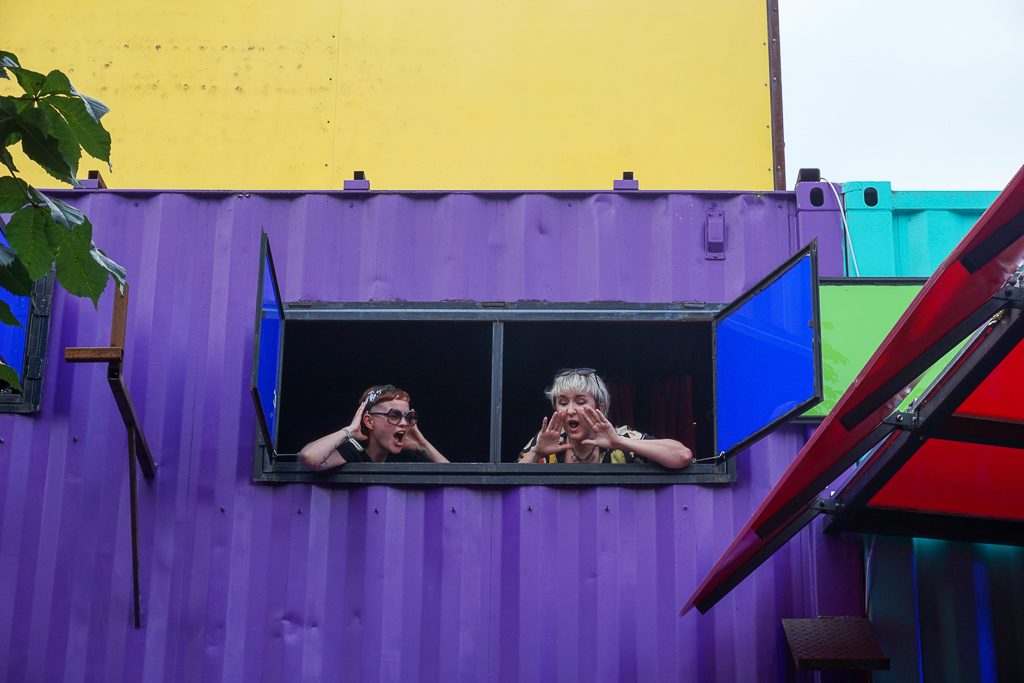
After her new friends discovered the DJ talent that Sophie kept hidden, they encouraged her to play again in Berlin. This time, however, it was on Sophie’s terms and in a community that she felt part of. Almost instantly she became a resident at queer-feminist party Lecken hosted in Untertage. “It’s nice cos I’ve grown with Lecken and I’ve found my queer family,” Sophie says. “Finally I’ve met a bunch of freaks – and if I have an idea they’ll roll with it. Like strapping dildos onto themselves and performing.”
At last Sophie felt like she’d found the scene she’d always belonged to. “I left the bass music scene in the UK feeling I was too much. That I was hitting my head against a glass ceiling – like no one ever really wanted to listen or care. And I thought it might be my gender but I think in retrospect my queerness didn’t fit in to that scene. But I found my freaks in Lecken.”
Since then S Ruston has exploded onto our dance floors and into our earholes, her hyperactive feel-good selections serving as the perfect complement to Berlin’s eclectic party scene. She’s been a resident at Renate for two years now and feels that the space fits with her identity seamlessly.
“It started because I messaged Karim (Renate’s PR manager) cos he’s my neighbour and I said I’d step in if he needed anyone last minute.” Karim steps in. “I helped her with one gig but the next day the team said ‘Wow. S Ruston is amazing. We love her!’ And they booked her every month. Both of these two came in and fit perfectly.”
The second person Karim is referring to is Alison Swing who has been listening attentively as we chat. “I never knew any of that!” She says as she hugs Sophie and warmly introduces herself.
Alison’s all good vibes and high energy, articulate and beaming as she explains her journey from LA to 030. “Five years ago I met a girl in the LA scene and we started a warehouse party together called Dig Deeper. We threw that for a good 3 years – monthly underground warehouse raves.”

Here she played as a resident and although her party was popular and established, Alison had a similar ‘fuck it, I’m moving’ moment after playing the very club we’re sitting in. “I actually made the decision to move after playing at Else. I was pretty drunk and decided life was the best here.”
Alison decided to drop everything – her job, her party – and move over. “The first week I moved here I played at Renate and then a few months later was playing there regularly,” Alison says. “I didn’t really know how to play in Europe when I first moved here and having Renate once a month I got to grow so much. Having a home is so important.”
Sophie and Alison have brought a fresh sense of openness and inclusivity to Renate’s line-up of regulars. “I play House of Red Doors,” Sophie says, speaking of the semi-monthly queer fetish night hosted by Bad Bruises. “That’s where I started. I remember one sweaty night last summer… It went nuts in there. There was something about a room full of smiling elves and fairies that made me want to fucking punish them. Then at some point I thought fine, they’ve worked hard enough, and I put the fog machine on and dropped an ecstasy track. It was great.”
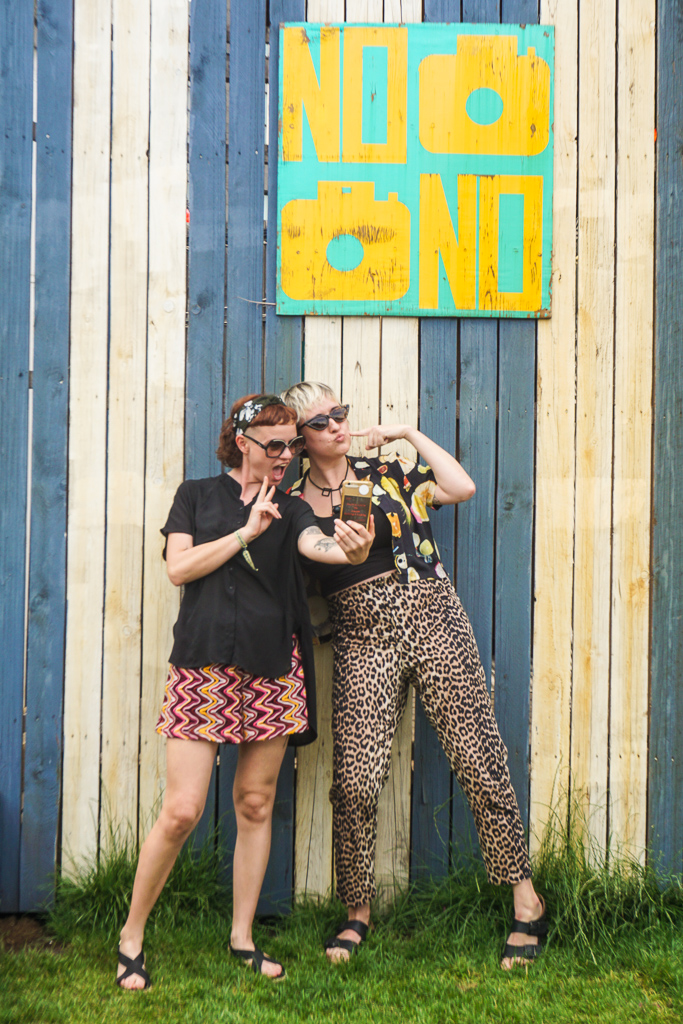
Alison is soon to launch a party series at Renate called UFORIA. “I’m really excited about it because we’re kind of taking the mindset that we had in LA but we’ll go a lot deeper than before. It’ll be a little more on the disco, house side of things. I like happy music. I like fun and sunshine.”
And regardless of the past, Sophie feels the scene is heading in the right direction. “My dad asked me what’s different this time round? And I said feminism. The new wave of feminism. Which for me means inclusivity for everyone. I come from the old school life where there wasn’t room for many women at the top. It was each woman out for themselves. But now there’s more room. And I feel like what’s happening here is really fucking exciting.”
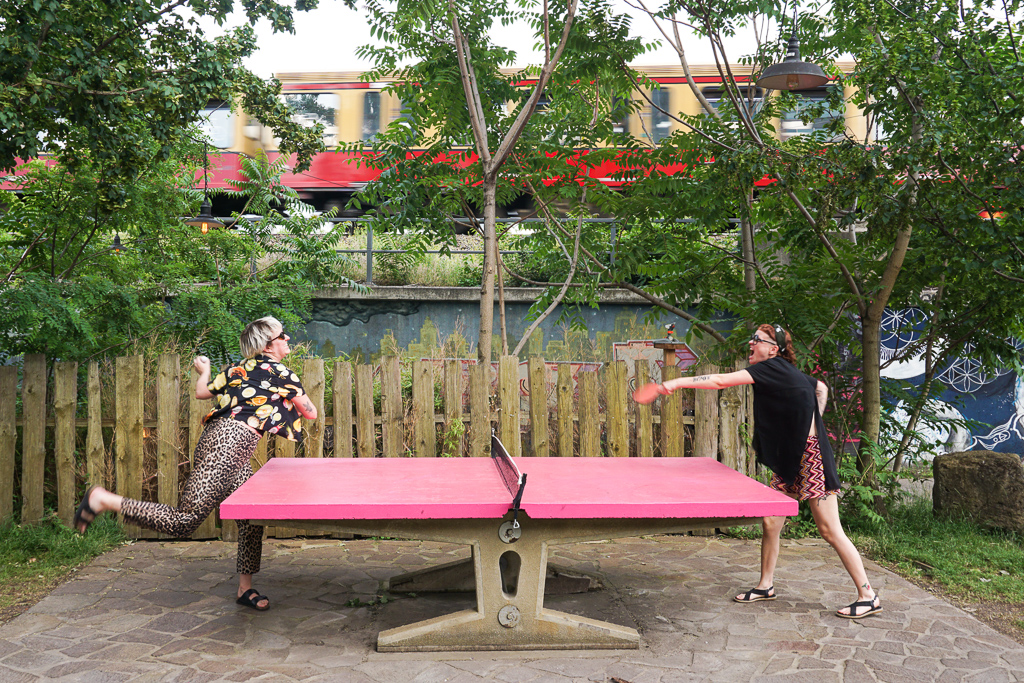
For all listings, news and events, check out renate.cc
Words and photographs by Alice Austin
